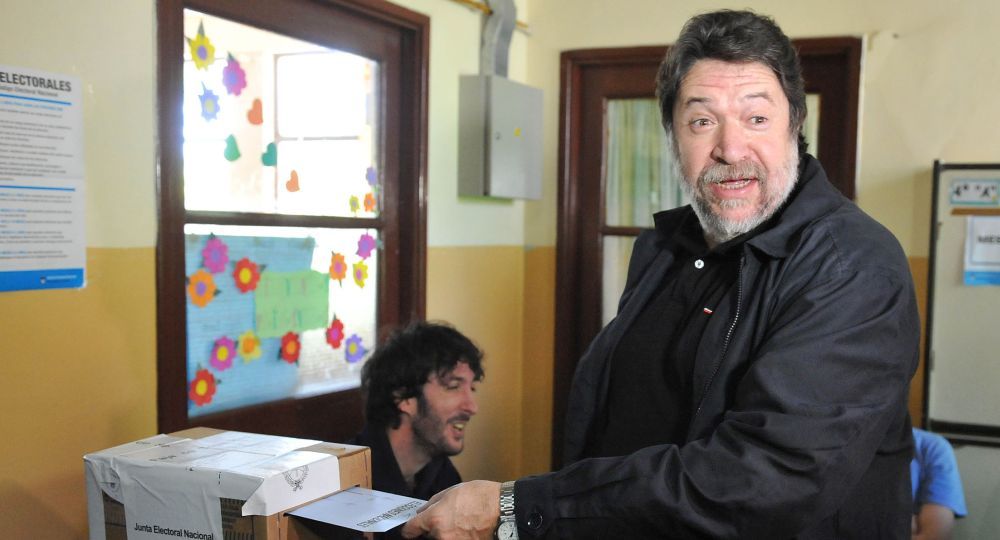Journalist: What went wrong in containing the price of food?
Claudio Lozano: One of the first failures is the lack of mechanisms that would prevent the evolution of prices from being transferred to the domestic market in a context of increases in international prices of products that Argentina exports, specifically soy, corn, soybeans, wheat and meat.
Q .: What are the control mechanisms?
C.L.: Establish withholdings in such a way that these international prices are lower in Argentina, production quotas where certain production is guaranteed at a certain price for the domestic market and the rest is exported. Today 600 thousand tons less are fished than in 2013-2014, which translated into a shortage from exports and an increase in prices. To make matters worse, the administration of the dollar by the Central Bank evolved above prices. Not only was the international price of products going up, but the dollar was also going up. The second mechanism is linked to oligopolistic markets and the dominant positions that some companies have. In the food sector, 6% of companies account for 85% of the market.
CLAUDIO LOZANO
NA
Q .: Does that happen anywhere else in the world?
C.L.: Yes, but there are regulations. Like here there is a very important level of concentration. Just to have some data, 7% of beverage companies control 93% of the market and 11% of drug companies control 83% of the pharmaceutical industry.
Q .: What characterizes oligopolies?
C.L.: The ability of those companies to agree on how they manage the price. They evaluate what is the demand they will have, they place the supply below to raise the price level and their profit margin. As there is no competition – which is the verse that all liberals put together about “letting the market work” – the market could work if there were companies that compete with each other because there would be multiplicity. They are companies with very strong dominant positions, therefore it is necessary to regulate to fulfill the role that the competition would fulfill. The third point is inertia. When the inflation rate is maintained over time, the one who has the ability to highlight marks to face eventual costs that he may have with another who stands out before.
Q .: What urgent measures should be taken to control prices?
C.L.: We must work on all three levels: regulatory mechanisms that decouple international prices, regulatory mechanisms that force supply and intervene in oligopolistic markets, and the possibility of freezing to curb inertia.
Q .: What does it mean to solve inflation?
C.L.: That there is an agreement regarding how we distribute what we generate among all of us and that is what has been turned upside down from the mid-70’s with the coup until now. In Argentina there is a dispute, there is a social order under discussion. The type of distribution that Argentina has today is not accepted, everyone is involved in that and some have more power than others. Those who control the markets gain, those who have weight in exports and handle a significant volume of dollars where in general there is an external restriction, which results in speculation against the dollar, they are also those who keep the share of the dollar. Lion. The only one that can order this dispute is politics, it is the State with concrete political power.
Q .: Why did the government have to wait until PASO to start reacting?
C.L.: I believe that the excuse of the pandemic was overvalued as an explanatory factor for the worsening of the situation. I also believe that the FDT was always an electoral creation and not a political force. It was not organized throughout the country and that meant that there were no areas of discussion, where actors who have noticed this situation were dispensed with and the management seconded it. There were many alerts about the situation that people were going through and it was not heard. In political terms, not transforming the FDT and being only an electoral coalition is something that also complicated.
Claudio Lozano.

Claudio Lozano.
Q .: Faced with the crisis, do you think that a Universal Income should be created?
C.L.: We are raising it before the government began. Even before the pandemic, with 37% of the population in poverty that Macri left us. The reality of an Argentina where practically half of the working population is in a situation of informality and unemployment. This situation of income vulnerability forces to place a dignity threshold with a floor that must guarantee the income policy through the State.
Q .: Why is the middle class – today a large part former middle class – excluded from these social policies?
C.L.: If there were a universal income that encompassed the entire situation of informality and unemployment, we would reach many of the new poor, today practically that represents 50% of the country’s working population. To a large extent, not making progress in universal guarantees is what prevents a good part of the middle sectors from entering because what we are looking for is the most delayed focus. They need a universal income and a universal floor would also improve the situation of the middle sectors.
Q .: But inflation eats them …
C.L.: We need to rebuild income, but solving the question of prices. If we do not solve the prices for more money than you put, nothing happens. Wages, pensions, universal income run behind and it is lost in terms of prices. Today we have the same economic activity, and even in some sectors superior to the pre-pandemic, with the poverty that the pandemic generated. We grew and it did not impact in terms of income. We were 45% poor, now 42% and it is as if nothing had happened.
Q .: Do you think that everyone’s front failed the middle class?
C.L.: Not because the FDT has lost many votes in popular sectors, which is where it did the best vote. The space lost votes even in the villas of the City of Buenos Aires.
Q .: Do you think that FDT did not lose votes from the middle class?
C.L.: Yes too. But it seems to me that there is a combo of discouragement, disappointment and an increasingly worse social situation that made 6 million people who had voted for the FDT not to vote. I think you also have to understand that JXC had 2 million fewer votes. Although they do not want to realize it, here there is a general questioning about a political system that is committed to the decline of Argentina, that is the bottom line. It is necessary to show that we can build political conditions so that the country is truly something else.
Q .: Why are many salaries not even the basic basket?
C.L.: In the logic of the restructuring of capitalism in Argentina, the function of wages was lost. It was not only the cost of the entrepreneur, it was the expansion of demand because the capitalists had an important “internal market” orientation, so the demand in the internal market was relevant. The restructuring that takes place in the context of the deindustrialization of a country that is reprimarising shows that its core business is linked to the export sector, finance and some high-income sectors, where wages are only a cost. Even in this context of permanent drop in wages, they continue to ask to eliminate compensation, taxes and have even more flexibility.
Q .: What urgent measures should you take so that wages reach the basic basket?
C.L.: We have been proposing a strategy that implies the creation of a universal income to put an equivalent to the hunger line to the entire population between 18 and 65 years of age who is in a situation of informality or unemployment, and even also those monotributistas of the first categories . At the same time, we propose the creation of a social salary for employment and training that allows articulation in an area of public and social employment with the State, cooperatives, the popular economy and SMEs, developing some activities that are essential, that the market does not value. and that they would allow us an important and productive social reconstruction.
Q .: The average income is tete to tete with destitution
C.L.: Yes, and in this way you would be putting a floor on the labor market because today you work for what you are paid, the minimum wage no longer works. Four out of ten people earn less than the living and mobile minimum wage. The average income of 40 thousand pesos and is linked to the indigence basket. In the joint organizations they negotiate the elimination of rights in exchange for increasing a salary that is not enough. So much so that more than 35% of the population works long hours in a context of high unemployment and low wages. If all those formal workers who are currently working approximately 53 hours a week worked 40, which would be 8 hours a day, almost a million jobs would be created.
David William is a talented author who has made a name for himself in the world of writing. He is a professional author who writes on a wide range of topics, from general interest to opinion news. David is currently working as a writer at 24 hours worlds where he brings his unique perspective and in-depth research to his articles, making them both informative and engaging.




